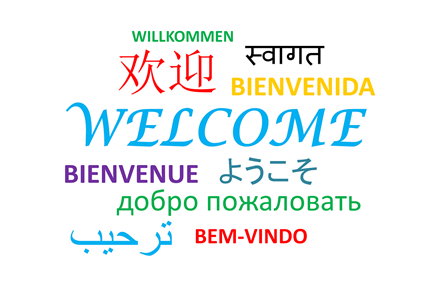Bringing a human touch to problem solving: Assoc Prof Graham Matthews
Assoc Prof Graham Matthews from NTU’s School of Humanities delves into how culture influences perceptions of health and sickness.
 Singapore is widely known in Asia as a healthcare hub with cutting-edge medical technology. Despite this, there is still much work to be done to increase health literacy in the country. How do we do this? An emerging field intersecting medical science and the humanities aims to answer this issue and more – medical humanities.
Singapore is widely known in Asia as a healthcare hub with cutting-edge medical technology. Despite this, there is still much work to be done to increase health literacy in the country. How do we do this? An emerging field intersecting medical science and the humanities aims to answer this issue and more – medical humanities.
Medical humanities is concerned with improving how doctors communicate with patients and investigating the ways in which culture influences perceptions of health and sickness, says Assoc Prof Graham Matthews from NTU’s School of Humanities (SOH), who specialises in the field.
“In this regard, humanities scholars are well-equipped to engage with the complexities of the patient's journey both within and beyond the clinic,” says Assoc Prof Matthews, who researches contemporary literature.
“Humanities scholars typically question generalised claims and are attentive to the particular, the subjective, and the experiential.”
Assoc Prof Matthews adds that the field of medical humanities connects the deep study of humanities disciplines such as literature, history, and philosophy to practical applications in healthcare.
For instance, literary study trains researchers in essential skills such as: narrative ethics; associative logic that involves making creative connections between seemingly unrelated concepts to address certain challenges; and the confidence to engage with complexity and ambiguity. This helps researchers engage with the complexities involved in many aspects of healthcare.
Other vital skills gleaned from literary study include close reading, critical thinking and being able to empathise with perspectives different from one’s own.
To foster medical humanities research in Singapore, Assoc Prof Matthews and Nanyang Asst Prof Ivy Yeh from NTU’s SOH established the Medical Humanities Research cluster at NTU in 2017. It involves faculty members from a range of disciplines, including literature and philosophy, as well as partners in medicine and communication studies.
Over the years, the cluster has cultivated a community of international academics, medical practitioners, nurses, artists, and writers with whom members have organised workshops, reading groups, art installations, exhibits, and talks for the general public or medical workers.
Assoc Prof Matthews and his colleagues hope that the research cluster will serve as a hub that encourages cultural exchange and the free transmission of ideas, methodologies, and innovative approaches to health and sickness.
In his new project funded by Singapore’s Social Science Research Council, Assoc Prof Matthews and collaborators Asst Prof Michelle Chiang from NTU’s SOH and Dr Mythily Subramaniam from the Institute of Mental Health (IMH) in Singapore aim to tackle mental health stigma in Singapore.
This project is a response to IMH studies that have revealed low mental health literacy among the public, which has led to harmful misconceptions such as the assumption that people with mental health conditions are violent. These, in turn, may cause those with mental health issues to avoid seeking help, which has considerable personal and social costs.
“As stigma discourages disclosure of relatively invisible conditions, such as mental health issues, much of a layperson’s knowledge of these conditions comes from cultural texts including novels, films, memoirs and plays; unfortunately, existing portrayals often promote negative and unhelpful stereotypes,” says Assoc Prof Matthews.
In response, the team plans to analyse how local cultural texts represent mental health, conduct focus group discussions with patients, and hold roundtable discussions with experts from the arts and healthcare sectors.
Through these efforts, they will work with IMH and other stakeholders to develop guidelines to help writers, directors and producers create more positive and accurate representations of mental health issues. Their research will help to challenge preconceptions and stereotypes of mental health that lead to the stigmatisation of vulnerable members of society.
A key component of the project is to train the future generation of medical humanities researchers, a mission that Assoc Prof Matthews takes to heart. He frequently involves his postgraduate students in a variety of collaborations that connect research in the medical humanities with the local context. Many of them have gone on to publish articles in prominent academic journals including BMJ’s Medical Humanities, Journal of Medical Humanities, and Literature & History.
“I am especially proud of their achievements,” he says, “I hope that training a new generation of medical humanities scholars in Singapore can help us engage in a fresh way with key areas of urgent concern such as mental health, infectious disease, and the health effects of climate change.”
The article appeared first in NTU's research & innovation magazine Pushing Frontiers (issue #21, December 2022).


.tmb-listing.jpg?Culture=en&sfvrsn=d9d3b962_1)
.tmb-listing.jpg?Culture=en&sfvrsn=6c7b6f1f_1)
.tmb-listing.jpg?Culture=en&sfvrsn=ab6472c8_1)

.tmb-listing.jpg?Culture=en&sfvrsn=ffaf2aec_1)
5872e661-3cf5-41b6-abee-8d297a83209c.tmb-listing.jpg?Culture=en&sfvrsn=61d1c8d7_1)